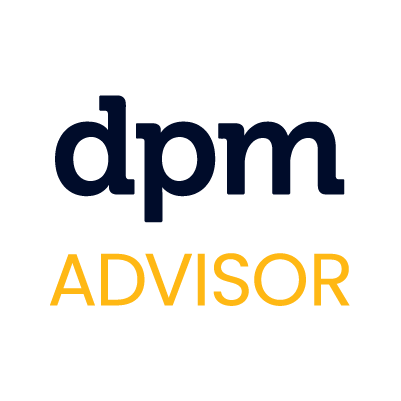Did you know that across the board in all organizations, 11.4 percent of all resources are lost due to poor project management procedures? And according to surveys by the project management institute, failing to properly integrate project management into their strategies may result in an increase in the overall project failure rate by a factor of two to three.
So, if you want to lower your project failure rate and optimize the overall resource utilization across your organization, then enterprise project management might be the solution that you are looking for.
In this ultimate guide, I'll answer what exactly enterprise project management is, why you need it, and provide an overview of EPM software to help you get started.
Now, you might ask yourself why I am well suited to guide you on this quest?
Personally, I have been involved in program management and enterprise project management for over 10 years now, first during my position with a well-known online payment provider and then at other brands and clients that I have worked for as a freelance consultant over the years.
What Is Enterprise Project Management (EPM)?
Enterprise project management (EPM) is the process of managing both multiple projects and complex projects within an organization. EPM often involves coordination among different departments and project teams, ensuring that each project stays on track and meets its objectives. While each project may be different, they all have an impact on the same organization.
As a result, EPM is essential for ensuring that an organization can efficiently and effectively manage its resources. Through EPM, organizations can avoid duplication of effort, ensure that projects are completed on time and within budget, and realize other benefits. In short, EPM is a critical tool for managing complex projects at an organizational level.
Get our in-depth PDF guide to enterprise project management for everything you need to know.
How Does Enterprise Project Management Differ From Traditional PM?
Enterprise project management is a method of managing projects on a whole organization-wide level. It usually entails the coordination of several complex activities at once. While the tasks may appear to be unrelated, they all have an influence on the same company.
EPM, therefore, requires a different approach than traditional project management (TPM).
EPM is focused on outcomes rather than individual deliverables. This means that project success is measured by how well the project meets the needs of the organization, rather than by whether all the milestones have been met. This holistic approach requires a deep understanding of the organization's strategy and objectives.
EPM also takes a more collaborative approach than TPM. Because EPM projects are often interdependent, it is important to involve all stakeholders in decision-making. This allows for a more coordinated and efficient use of resources. Finally, EPM places emphasis on adaptability and flexibility.
With ever-changing organizational objectives, EPM must be able to rapidly respond to changes in scope or priorities. In summary, EPM is a unique approach to project management that is tailored to fit the needs of organizations. It takes into account the strategic objectives of the organization, and involves all stakeholders in decision-making functions.
Enterprise Project Management vs. Program Management
Program management is the process of overseeing and coordinating a program or group of programs. Therefore, program managers are responsible for ensuring that programs meet their goals and objectives, and that they also develop and implement policies and procedures to keep programs running smoothly.
Program management is a critical function in any organization, and program managers must possess strong leadership, analytical, and interpersonal skills. It is also a complex field, with many sub-disciplines, such as project management, portfolio management, change management, and product management. Read more about how it's distinct from project management here.
Enterprise project management requires a different skill set than program management, and as such, it is important to understand the differences between the two before deciding which approach is right for your organization.
Enterprise project management is a specialized form of project management that deals with the coordination of multiple, complex projects within an organization. EPM involves the ability to track and monitor progress across all projects, identify areas of overlap or potential conflict, and ensure that each project is moving forward in a timely and efficient manner.
In many cases, EPM can be the difference between success and failure for an organization.
Read about the differences between the role of project manager and program manager here.
What Is Enterprise Project Portfolio Management?
Enterprise project portfolio management (EPPM) is the process of selecting, prioritizing, authorizing, and managing projects that an organization undertakes to achieve its strategic objectives.
Enterprise project management is a way for businesses to manage projects at an enterprise-level, across the entire company. This includes all aspects of the project life cycle from initiation to execution to closeout. Enterprise project portfolio management is the umbrella term that encompasses all aspects of enterprise project management.
EPPM provides a framework within which an organization can select, prioritize, and authorize projects based on their strategic objectives. It also provides a mechanism for managing and monitoring these projects to ensure they are delivered on time and within budget.
EPPM is an essential tool for organizations that wish to optimize their return on investment in project management and improve their overall performance. By aligning projects with strategic objectives, EPPM ensures that resources are used effectively and efficiently to deliver maximum value.
How To Plan An Enterprise Project
Read on for a brief, but comprehensive guide on the essential elements for the successful planning of an enterprise project.
As we have established, enterprise project management is a systematic approach to managing projects at all levels of an organization. It is a system that incorporates seven specific elements in order to streamline efficiency and optimize productivity.
These seven key elements are: risk control and analysis, estimating, reviewing methodologies, escalating issues, time management, information systems, and training and mentoring.
Each of these elements are essential to the success of any EPM system, and should therefore be applied thoroughly when planning any enterprise project:
- Risk control and analysis: focuses on identifying potential project risks early on and developing a plan to mitigate them.
- Estimating: refers to the process of estimating the cost, timeline, and resources necessary for a project.
- Reviewing methodologies: entails constantly evaluating and tweaking systems and processes in order to improve them.
- Escalating issues: refers to the importance of quickly addressing any problems that arise during a project.
- Time management: emphasizes the need to plan, monitor, and adjust schedules in order to keep projects on track.
- Information systems: involves using data to inform decisions and track progress.
- Training and mentoring: encompasses providing employees with the resources they need to succeed.
Enterprise project management is a complex system, but one that can bring great benefits to an organization if it is executed properly.
By understanding and utilizing all of these seven key elements, organizations can better manage their enterprise projects, minimize risk, achieve their goals more effectively and utilize their company-wide resources more efficiently.
Want to know more? Then check out this article for more information on how to create a successful enterprise project management framework.
Enterprise Project Management Software
In comparison to regular project management software, enterprise project management software is a type of software that helps organizations and the enterprise project management office (EPMO) plan, execute, and track large-scale projects across the organization. It can be used to manage everything from construction projects to product launches.
EPM software typically includes features such as project planning and scheduling, resource management, task tracking, and budgeting. Organizations use EPM software to better manage their projects, gain greater visibility into their projects overall, identify potential risks and issues early on, and track progress against milestones.
In addition, EPM systems can help organizations optimize their resource usage and improve project efficiency. To sum up, enterprise project management software can benefit organizations by helping them better plan, execute, and track their projects.
What To Look For In Enterprise Project Management Software
When choosing an EPM software, there are a few factors that project managers should keep in mind:
- The software should be able to handle large and complex projects and should be able to support the specific needs of your business.
- It should offer a variety of features, such as task management, resource allocation, project reporting, etc., and be user-friendly so that employees can quickly learn and start using it effectively.
- It should be compatible with other software applications that the organization uses. In addition, the software should be scalable, so that it can grow with your business as it expands.
- It should be affordable and in line with your budget.
By taking all of these factors into account, you can be sure to choose the right enterprise project management software for your business.
Information technology has come a long way in the past few years, and with it, so has enterprise project management software. No longer do managers need to rely on dated tools like spreadsheets or email to organize and manage their projects. In fact, there are now a number of excellent software tools out there that can make managing projects a breeze.
So, which one is the best for you? Check out our list of the best enterprise project management software tools to find out.
Need expert help selecting the right Project Management Software?
If you’re struggling to choose the right software, let us help you. Just share your needs in the form below and you’ll get free access to our dedicated software advisors who match and connect you with the best vendors for your needs.
Bottom Line
To sum up, if you want to make sure your organization is getting the most out of its projects and existing resources, it’s time to introduce enterprise project management. By doing so, you can avoid common pitfalls and ensure that your organization is working as efficiently as possible.
Do you need help getting started? Then the team at The Digital Project Manager is here to support you every step of the way. And don’t forget to subscribe to The DPM newsletter for more tips on how to improve your organization’s performance.





